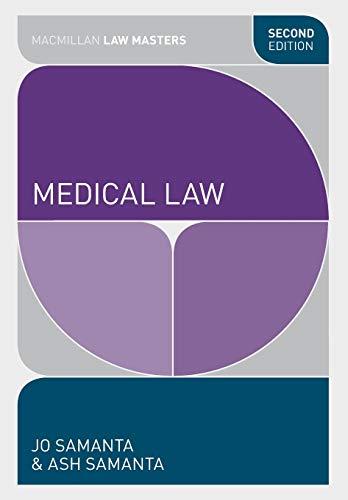Question
As this section will discuss, goods are defined as any object that is movable at the time of the sale.The meaning of goods is sometimes
As this section will discuss, "goods" are defined as any object that is movable at the time of the sale.The meaning of "goods" is sometimes an issue.You have already foundCryolife, Inc. v. The SuperiorCourt(2003) 110 Cal.App.4th 1145.Make discussion board thread with a list of other things that would also likely NOT be classified as a "good"because of this ruling.In this thread, also discuss electricity as a good.I will give you a head start:look at this quote and case:
"Indiana has subjected public utility companies to liability for producing electricity by holding that the sale of electricity does involve the sale of a "good" under the Uniform Commercial Code. SeeHelvey v. Wabash County REMC, 151 Ind. App. 176, 278 N.E.2d 608 (1972). Indiana has limited this holding to cases where the electricity has passed the customer's electric meter. SeePetroski v. Northern Indiana Pub. Serv. Co., 171 Ind. App. 14, 354 N.E.2d 736 (1976). Indiana supports this conclusion by finding that electricity is a thing existing and moveable. The courtin Helvey, applying the definition of a "good" under the Uniform Commercial Code, said "logic would indicate that whatever can be measured in order to establish the price to be paid would be indicative of fulfilling both the existing and moveable requirements of goods." Helvey, 151 Ind. App. 176, 178, 278 N.E.2d 608, 610 (1972)."
Do you agree with this case?How does this seem similar or dissimilar to the Cryolife case ruling? Write out your answers to these question after your list in your thread.
Step by Step Solution
There are 3 Steps involved in it
Step: 1

Get Instant Access to Expert-Tailored Solutions
See step-by-step solutions with expert insights and AI powered tools for academic success
Step: 2

Step: 3

Ace Your Homework with AI
Get the answers you need in no time with our AI-driven, step-by-step assistance
Get Started


